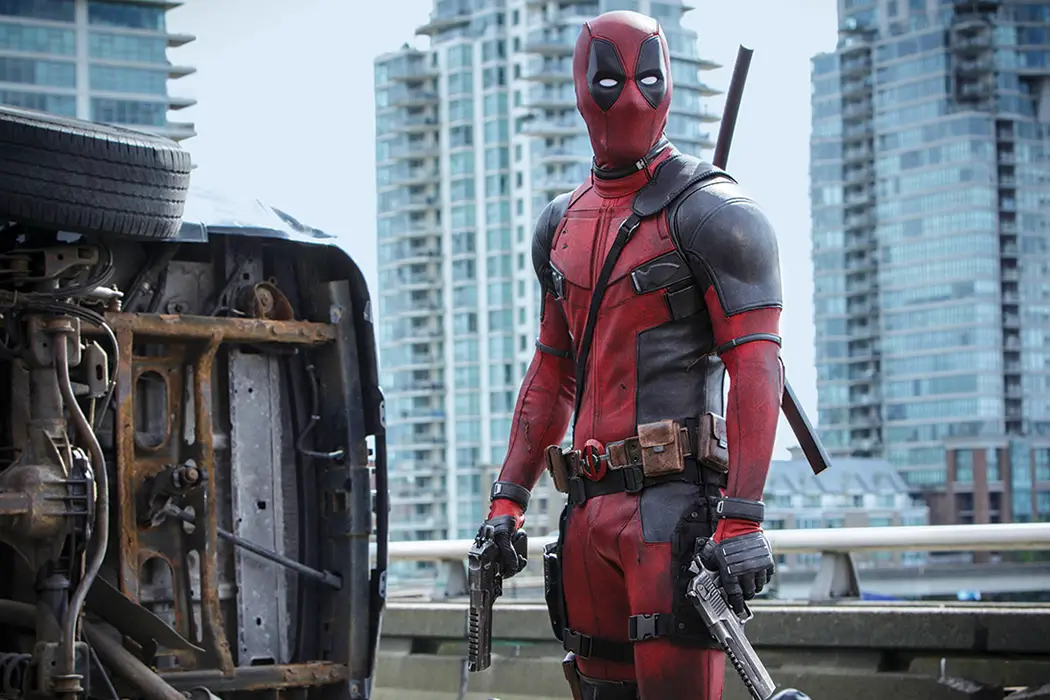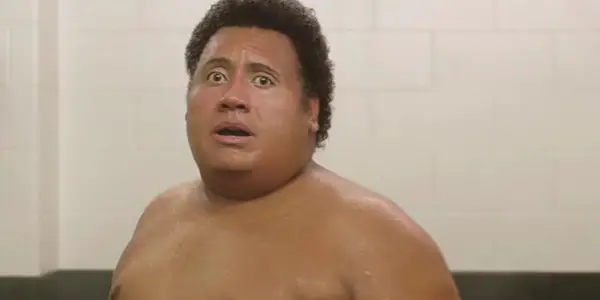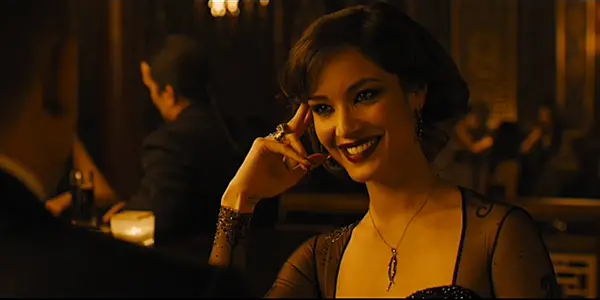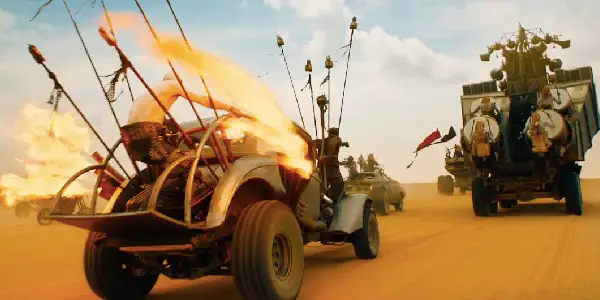The Films Are Alright: In Defense of Franchise Filmmaking

Hazem Fahmy is a poet and critic from Cairo. He…
There’s a bad tendency in film criticism to confuse major changes in the industry with the complete and utter demise of the medium as we know it. This is a tired and antiquated notion that has long permuted throughout discourses on the arts and culture. Every era thinks it’s worse off than the one before it. Every golden age has already passed. They don’t make ‘em like they used to. What’s this generation coming to. Yada. Yada. Yada.
Like any dynamic and popular artistic medium, film is in a constant state of flux. Every decade since film’s inception has brought in its own set of conventions, strengths, and limitations. More importantly, however, the more internationally accessible film production and distribution becomes, the more difficult it is to define any single period by one global cinematic era. The ’80s for the US may have been defined by big and loud action blockbusters (the Indiana Jones’s, the Rambos, the Back to the Futures, etc.), but for countries like China and Taiwan, the ’80s were defined by critical cinematic New Waves, the Fifth Generation, and Taiwan New Cinema, respectively. Essentializing the ’80s as the decade of action blockbusters would be essentializing cinema itself as Hollywood studio filmmaking. It would also be disgustingly America-centric.

And yet here we are. It seems every other month another article comes out bemoaning how franchises are ruining the sanctity of Hollywood filmmaking. The first I encountered of this kind was Mark Harris’s widely circulated rant, “The Birdcage”, published over three years ago in Grantland. Despite making numerous astute observations on the effects of franchises on the market, his analysis ultimately came down to that same shoddy, apocalyptic fear that’s been peddled for as long as criticism of any art has existed. He lays it all out in his third paragraph:
“If movies have, for a century, been the repository of our dreams, and every generation gets the dreams it deserves, then ours is Rodin’s The Thinker reimagined as a superhero poised on the edge of the crapper, and the rest of us poised on the edge of … well, it may be a little extreme to invoke the abyss. But we’re on the edge of something, and the something is big and dark and annihilating. So call it what you will, but come up with a name fast, because we’re all about to get sucked in.”
The Perpetual Abyss of ‘Originality’
Now, I can’t blame Mr. Harris too much for having felt this impending doom back in 2014. After all, much of my argument against the likes of these statements rests on what we’ve seen from the industry over these last three years. But I do want to emphasize how weak and limiting I find this strand of thinking. Like virtually every development and innovation in film before, from sound all the way to 3-D, franchise filmmaking is being blamed for a problem it is neither responsible for nor is a symptom of: Hollywood decadence. In other words, franchise filmmaking is not responsible for Hollywood creative bankruptcy; Hollywood is responsible for Hollywood creative bankruptcy.
Of course, there is absolutely nothing new about Hollywood studios’ obsession with profit, specifically vis-á-vis milking the life out of whatever’s marketable at the time. Worldwide, studio filmmaking has always gone hand in hand with the market. The second anything proves popular (whether it be Mary Pickford, Technicolor, melodramas, or franchises) studios make as many films showcasing said object of popularity until it either fades or is replaced by a new, more shiny, more profitable successor. Just as with every marketable gimmick that ever took over the industry for some time, franchises are the shiniest, most profitable thing right now, but that in itself is not the issue.
Left and right, critics and journalists are blaming franchises and properties for killing off ‘original’ projects, without much interrogation of what that really means. In the aforementioned Grantland piece, Harris urges us to think of: “the [original] movies that aren’t getting made.” An uncannily similar piece in the Washington Post, published literally a month later, by Cecilia Kang, echoes the same hackneyed sentimentality, concluding that franchises simply: “recycle the same characters […] to the exclusion of practically anything else.” Recent journalism is by no means exempt from this fear-mongering. Brent Lang opens up his summer preview for Variety with the bold statement: “In Hollywood, nothing is more dangerous than an original idea,” while Mathew Jacobs’s Huffington Post piece on the flaws in Universal’s Dark Universe plan asks us to think about: “how many original stories died so this endless derby of reboots and spinoffs could live?” Helen Lovejoy ought to replace “children” with “originals”.
But these pleas do beg a critical question: what exactly is an ‘original’ film? If we mean to say one that is neither a sequel/prequel/remake nor an adaptation of a popular work that could produce a franchise, then Hollywood’s ‘original’ properties are as lukewarm, if not worse, than their franchise counterparts. Let’s look at the studio films that fit this bill so far in 2017. For Warner Brothers that includes showstoppers such as Fist Fight, Going in Style, and the horrifically titled Everything, Everything. For Fox, that includes the terribly marketed A Cure for Wellness, The Boss Baby and Amy Schumer’s latest tired vehicle, Snatched. For Universal, that includes Split (ignoring the twist), Get Out and the embarrassment that is The Great Wall. As for Paramount and Sony, that includes only the laughable flop, Monster Trucks and the borderline Alien rip-off, Life, respectively. Let’s not count Disney, as their only non-property film so far this year is Born in China, the latest in their line of cutesy animal documentaries.

With the exception of Split and Get Out, (both of which were only distributed, not produced, by Universal, and made for under $10m) none of these films display much ‘originality’. Most of them fall back on tired tropes or hallow gimmicks and very few of them succeeded very much, either financially or critically. Last year’s ‘originals’ didn’t do much better. We saw an onslaught of mediocre animated films, from Storks and The Secret Life of Pets, to the horrific Sing and Trolls. Even the ‘original’ action and comedy selection, traditionally two of Hollywood’s strongest genres, fared quite miserably. Whether it was Central Intelligence, Allied, The Accountant, The Brothers Grimsby or Whiskey Tango Foxtrot, the majority of these films displayed more or less the same core problems: mediocre filmmaking, generic and uninspired storytelling, and an over-reliance on star power; all issues indicative of a studio system that has become too afraid to take risks and bank on ingenuity.
How ‘Original’ is Your Franchise?
It would, of course, be silly to suggest that franchise filmmaking, more than previous profitable gimmicks, is not exceptionally informed by Hollywood’s aversion to risk-taking. But it is equally, if not even more, silly to blame franchise filmmaking, as a form in and of itself, for said aversion to risk-taking. The ‘original’ films Hollywood is making are suffering from the exact same problems Harris and co. are associating with franchises. Had the course of recent film history been somehow altered only slightly so that franchises were not the current big thing, we would still be suffering from a dearth of quality studio films. It doesn’t take a non-property script to make a good film, it takes good filmmaking to make a good film.
So what if we expanded our definition of an ‘original’ film? The Dark Knight was a sequel to a reboot of a franchise adapted from the stories of a seventy year-old character, but can we really argue that Christopher Nolan’s bold reimagining of Gotham and Batman’s mythology can’t be considered ‘original’ simply because of a brand? Similarly, Sam Mendes’s Skyfall delivered a haunting and unprecedented take on James Bond that propelled the franchise to unprecedented financial and critical success. Are we going to dismiss Mendes’s vision simply because he was working within an established franchise? Is his disruption of the legendary formula not exactly what made Skyfall the most successful Bond film to date?
To this, I’m sure the likes of Harris will say: but not every franchise film can be a Dark Knight or a Skyfall. And they would, of course, be right. Just as every ‘original’ summer blockbuster can’t be a Jaws or a Star Wars. Franchise filmmaking can, and does, produce exceptional and exciting work that cinematically and culturally benefits from being part of a larger story or mythology. Franchise filmmaking has been around long enough to become its own form and, as several recent films show, we are only just starting to see that potential being explored.

George Miller’s masterful Mad Max: Fury Road was a reboot of a more-or-less completed trilogy that was very much a product of its decade’s cinematic and political sensibilities. On paper, Fury Road seems like it should have turned out to be an unnecessary cash grab, but it proved absolutely otherwise. By updating the aesthetic, style and thematic questions of the series, Miller made an incredible action-adventure film that was only strengthened by the cinematic legacy it was both subverting and celebrating.
Similarly, Ryan Coogler’s Creed was a prolonged sequel to a franchise that had already had a prolonged sequel nine years earlier in 2006’s Rocky Balboa. Narratively, there was absolutely no urgent reason as to why the world Sylvester Stallone built back in ’76 needed to be revisited. And yet, by switching focus onto Apollo Creed’s legacy instead of Rocky’s, Coogler found a way to re-explore the narrative in a powerfully contemporary manner that managed to use the saga’s traditional themes of ambition, family, and legacy to also comment on race, class, and ability. It would simply have not been the same film had it not been conscious of the mythology it was challenging and expanding. This year’s heart-wrenching Logan was a similar achievement in the sense that it drew the strength of its plot and emotional driving force from an acute awareness of the narrative and characters’ place in popular culture. The film’s exploration of age, fatherhood, and compassion is inherently tied to the property to which it belongs. Logan’s originality directly stems from the way it uses its property.
Franchises, especially Marvel’s, have also proven adept at delivering stellar films that economically, or even conceptually, could not have existed without the umbrella of a larger property under which they can fall. There’s no way Disney would have invested $200m in James Gunn’s Guardians of the Galaxy, what with its obscure characters and quasi-absurd adventure, had the Marvel Cinematic Universe not proven a tremendous success by 2014. And thank God it did. Guardians was one of the most, literally, colorful and genuinely funny action blockbusters of recent memory.
Fox’s Deadpool is another example of a risky film that was actually made safer and more successful by its franchise umbrella. Its tremendous success, both commercially and critically, did not only further prove that there is ample room for creativity in the franchise machine, but also actively paved the way for Fox to take a gamble on Logan. By defying what we expect and know of their cinematic universes, these two films, especially in their humor, also benefit from being part of a larger franchise. They are better, and more unique, because of that which makes them ‘unoriginal’.
Conclusion
So am I optimistic about the future of cinema? Not any more than I was ten years ago, which is to say: yes, but I always have been, and I think I always will be. Like all relevant and popular art forms, film isn’t going anywhere any time soon. Its industry, which has always been bigger than Hollywood, is one that has time and time again defined itself by change and innovation. Filmmaking changes every decade. Genres fade. Trends shift. We can, and should, mourn the passing of beloved types of films. Harris is right in that we may be witnessing the end of the summer blockbuster as we have traditionally known it since the ‘70s. That’s unfortunate, but it’s not the end of cinema, and certainly not the end of studio filmmaking.
Hollywood may have found itself in a creative lull for a good portion of the 2010s, but that’s on panicked executives who are too controlling to give auteurs a chance. And this is already changing before our eyes. More and more directors like James Mangold, Tim Miller, and Patty Jenkins are being given the liberty they need to make the films they want to make, and said films are succeeding for it. Franchise filmmaking, as it is growing today, is still relatively young and is still figuring itself out. Let’s give it time, and perspective.
What’re your thoughts on franchises?
Does content like this matter to you?
Become a Member and support film journalism. Unlock access to all of Film Inquiry`s great articles. Join a community of like-minded readers who are passionate about cinema - get access to our private members Network, give back to independent filmmakers, and more.
Hazem Fahmy is a poet and critic from Cairo. He is an Honors graduate of Wesleyan University’s College of Letters where he studied literature, philosophy, history and film. His work has appeared, or is forthcoming in Apogee, HEArt, Mizna, and The Offing. In his spare time, Hazem writes about the Middle East and tries to come up with creative ways to mock Classicism. He makes videos occasionally.













